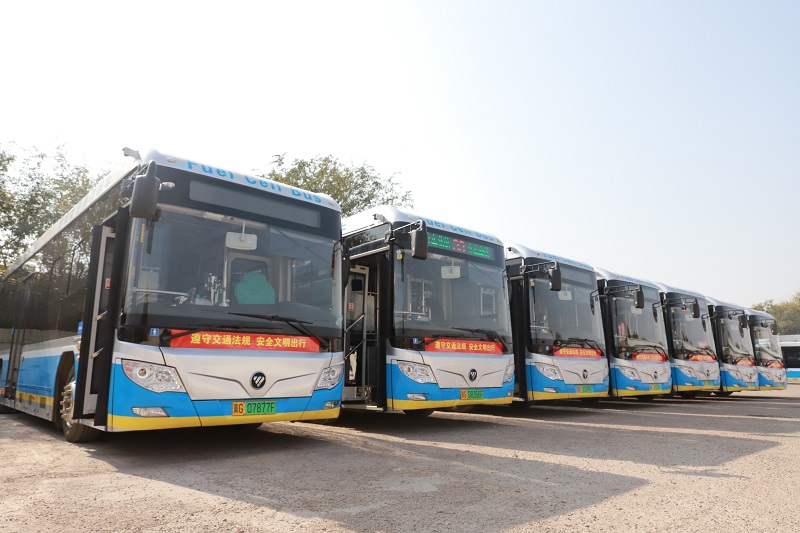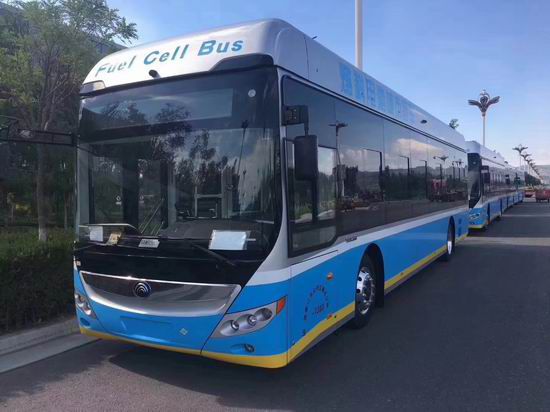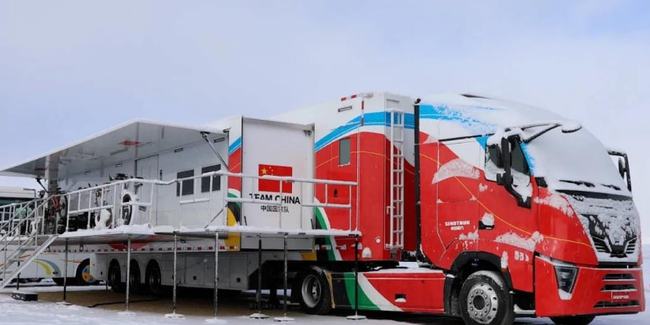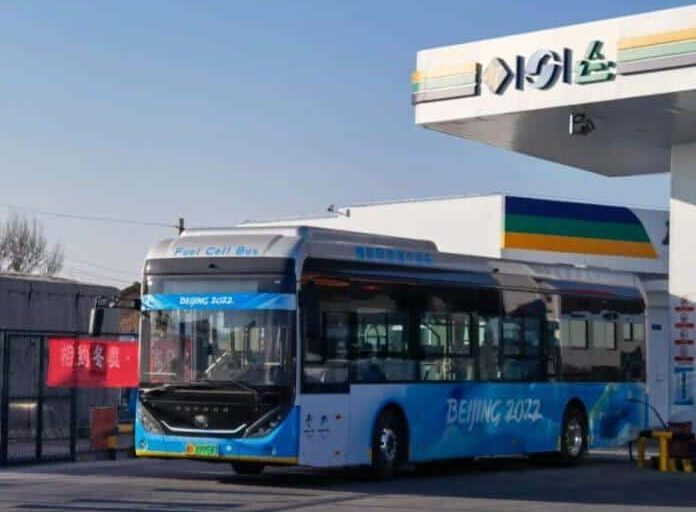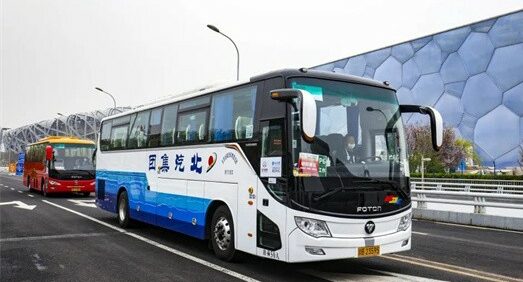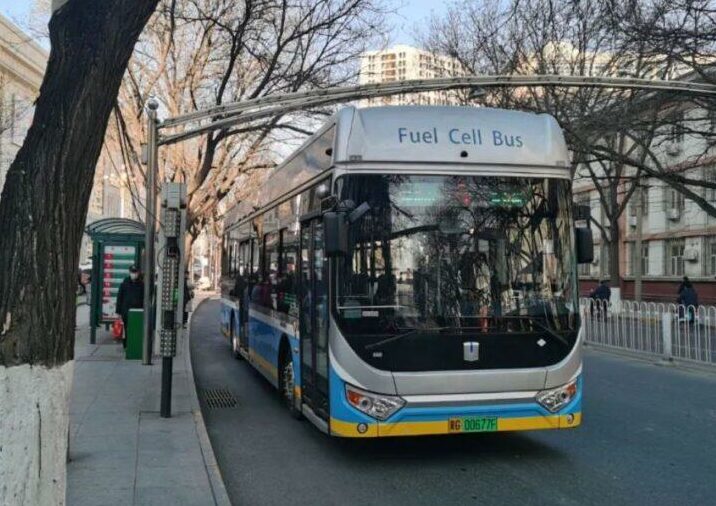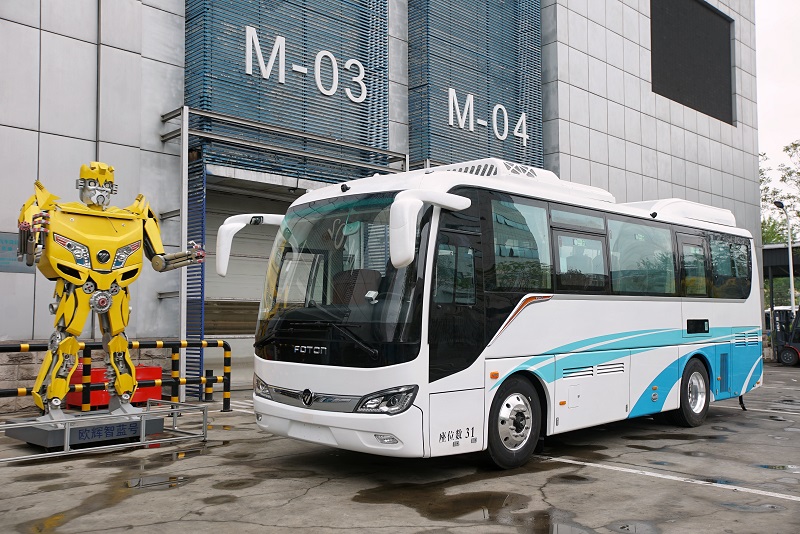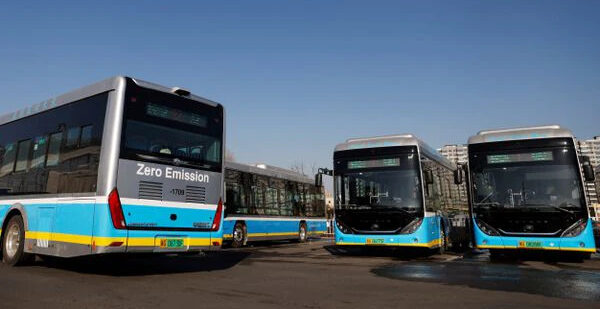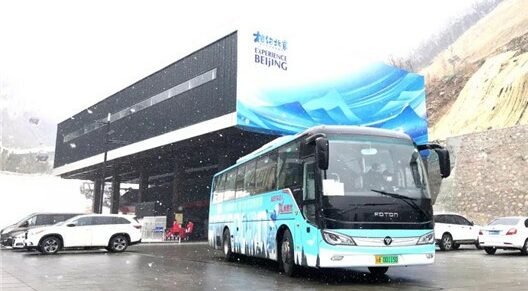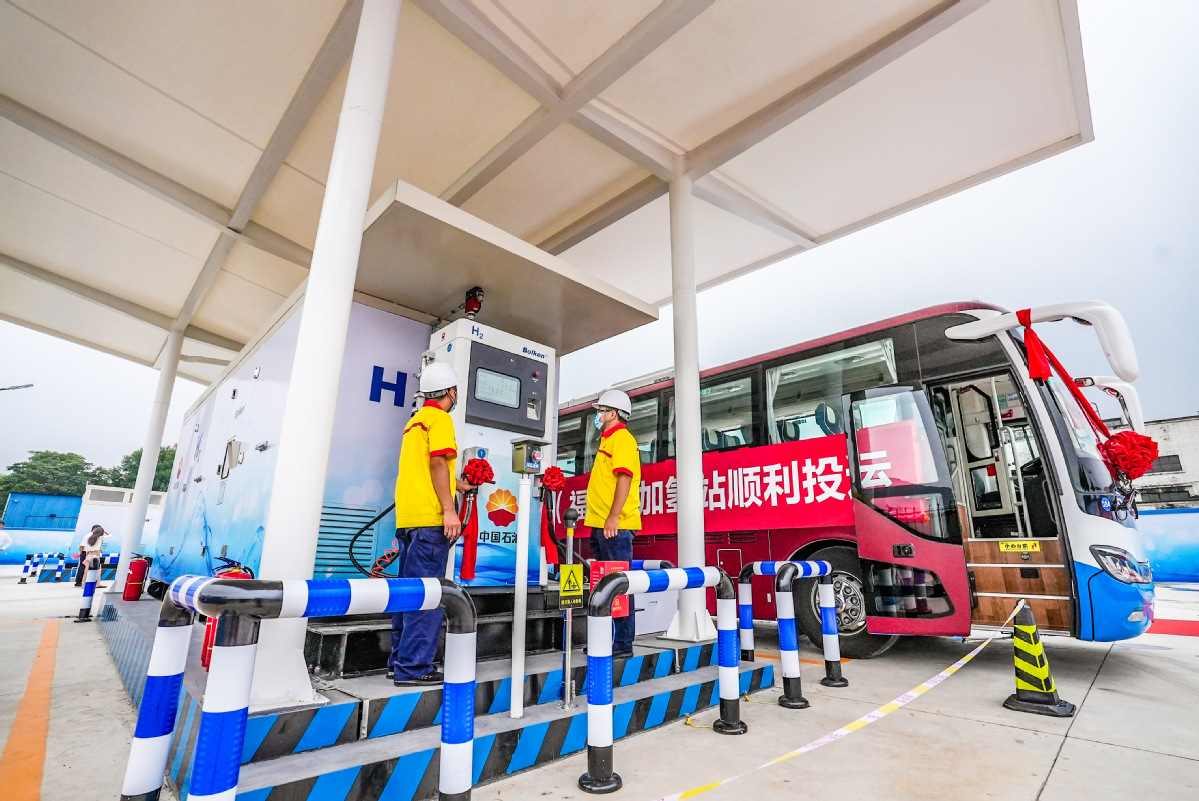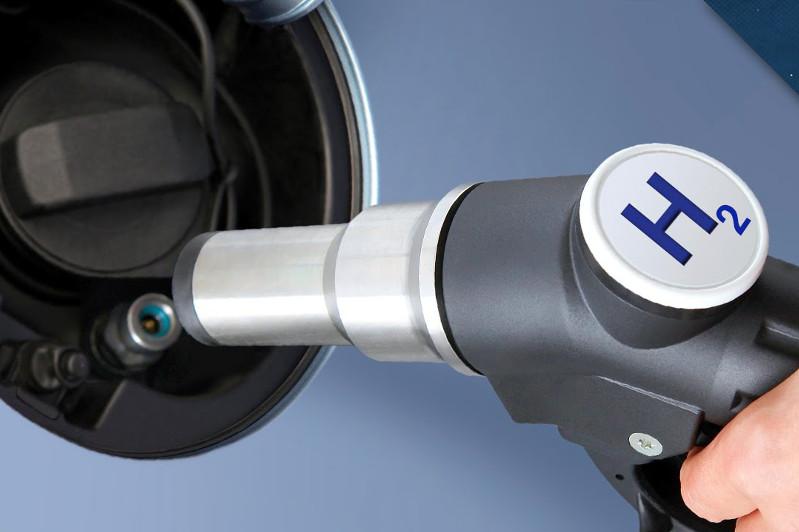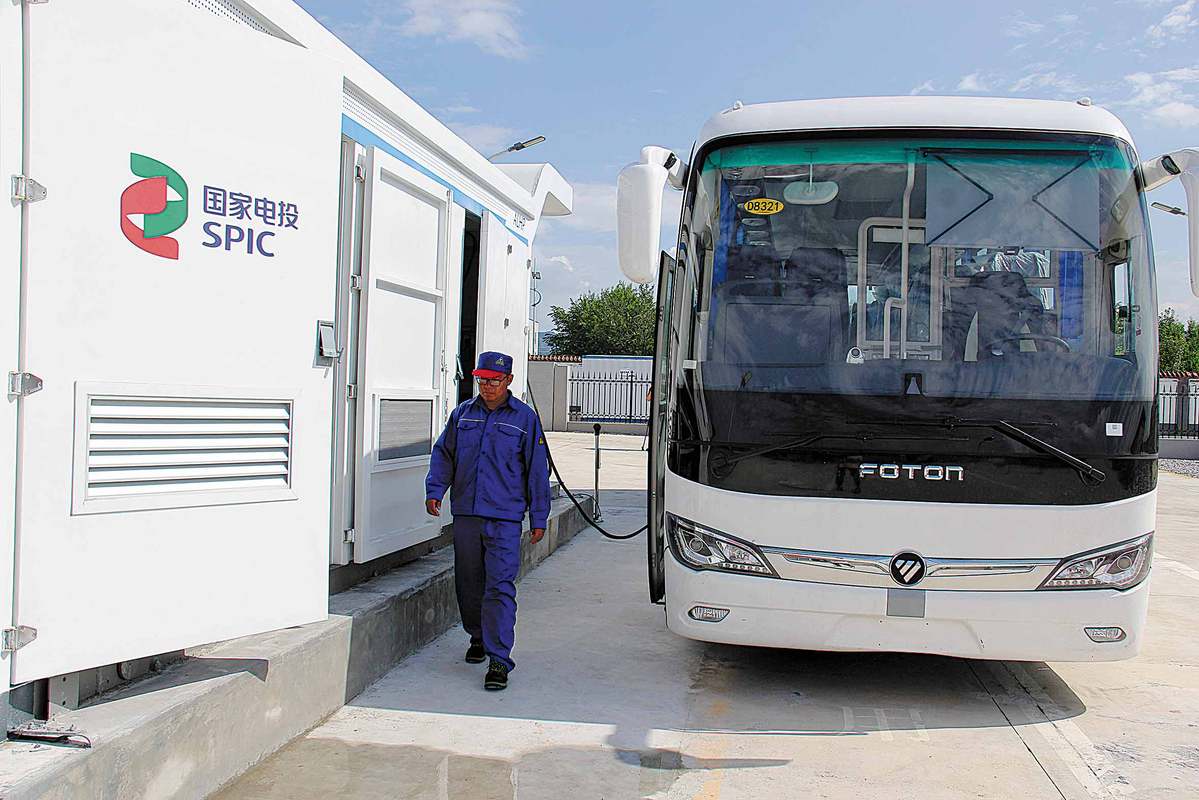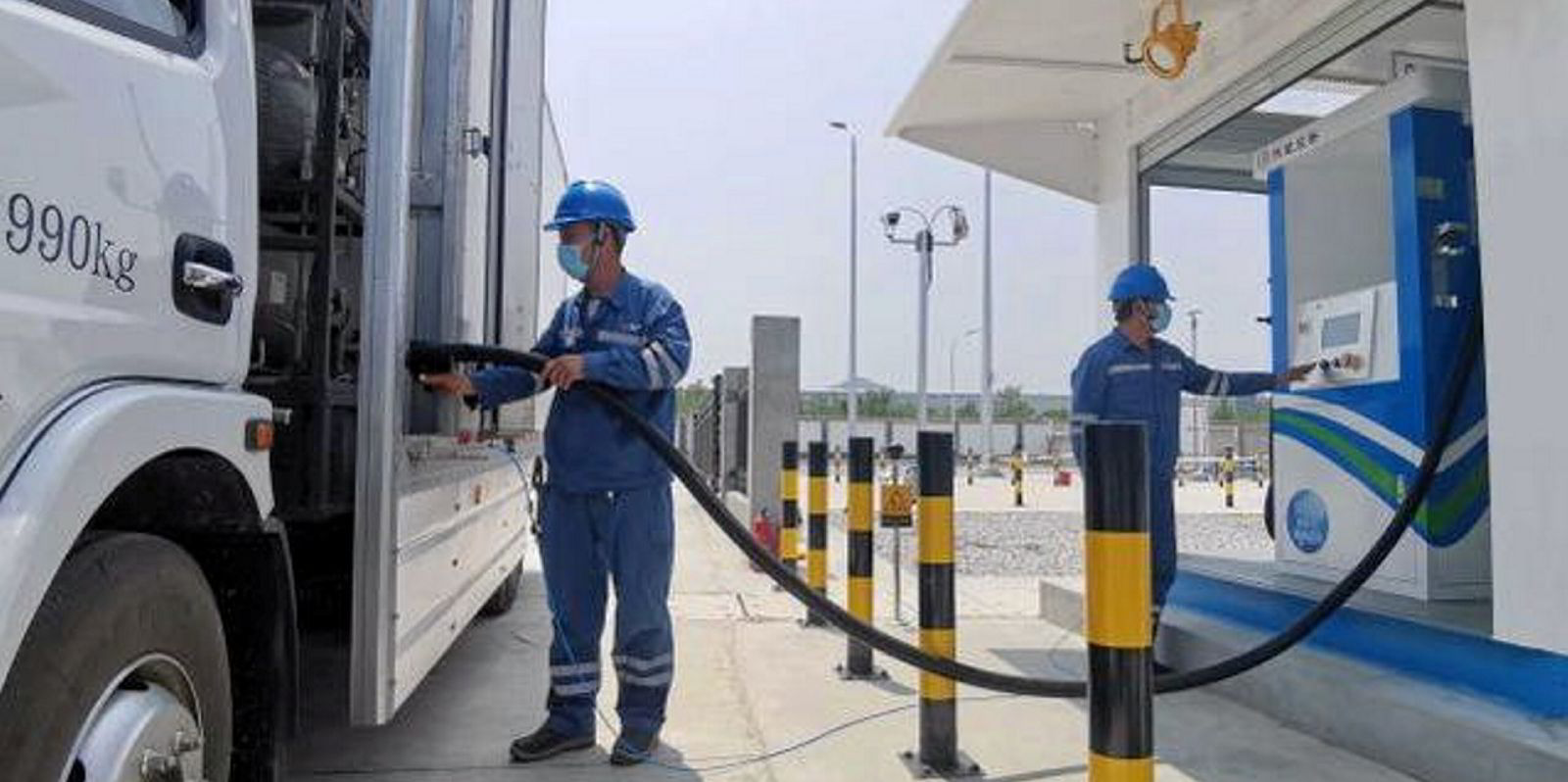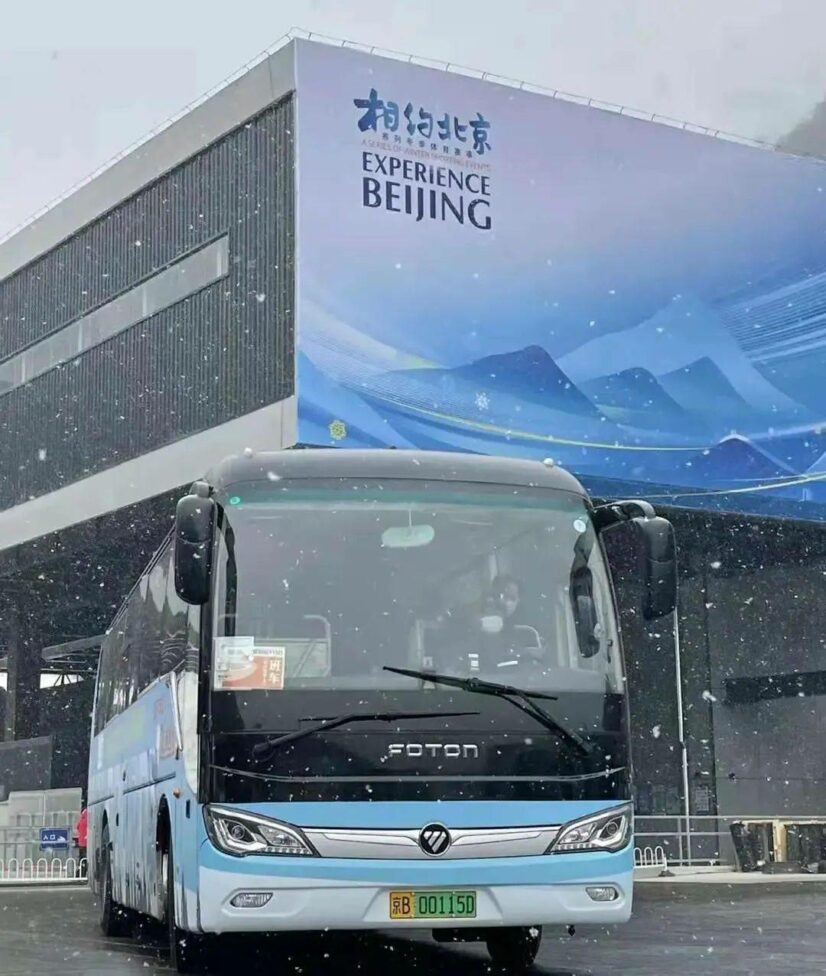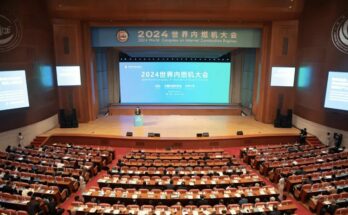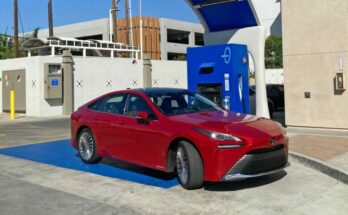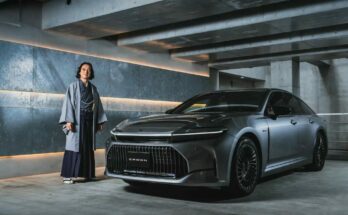The 2022 Beijing Winter Olympics which officially opened on 4th February 4 became the first Olympic event to achieve carbon neutrality. As the world’s largest demonstration of more than 1,000 hydrogen & fuel cell vehicles are in operation with over 30 hydrogen refueling stations.
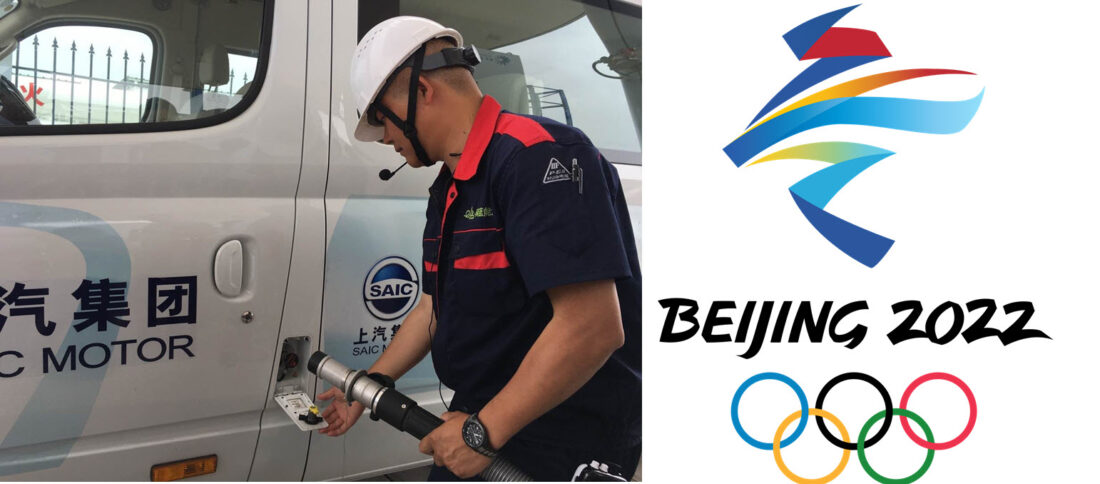
According to the Beijing Winter Olympics Organizing Committee, 816 are commercial vehicles supplied by brands including Beiqi Foton Motor and Geely’s commercial vehicle brand Farizon. As per info, Farizon has provided 80 Interstellar Hydrogen Fuel Cell Bus C12F. Farizon even has an onsite full-time support team composed of R&D engineers, service engineers, and supply chain engineers to ensure smooth vehicle operations.
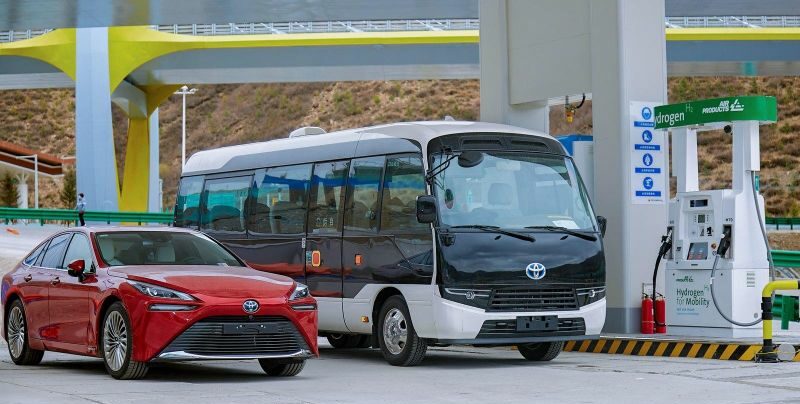
Toyota has also provided 140 second-generation Mirai hydrogen fuel cell vehicles. This is the first time the second-generation Mirai has been put into large-scale usage in China. Plus, among the 515 hydrogen-fueled buses in operation, 212 are equipped with the Toyota hydrogen fuel cell system developed as a joint venture between Toyota, BAIC Group, and SinoHytec, the latter is a Chinese company that engages in research, development and industrialization of hydrogen fuel cell engine technology.
Related: Major Automakers Planning to Push for Hydrogen-Powered Cars
Beside buses, other hydrogen fuel cell vehicles also included trucks. Zhilan Automobile provided the 4.5T hydrogen fuel cell logistic trucks customized explicitly for the Beijing Olympics. Sinotruk has provided the first hydrogen fuel cell truck with a snowboard wax trailer to wax snowboards for the Chinese Olympic team.
Hydrogen vehicles on duty at 2022 Beijing Olympics
In future, Hydrogen will play a certain role in the transition to clean energy to achieve carbon neutrality. The relation will be similar to the petrol & diesel engined vehicles of today, where petrol is commonly used for mass passenger cars, whereas diesel mostly in commercial & heavy vehicle sector. The electric vehicles will power the majority of mass produced passenger & small vehicles, whereas hydrogen will be there for large range commercial & heavy vehicles. This was also affirmed by Honda CEO Toshihiro Mibe, recently however there is a difference between hydrogen fuel cells & actual combustion of hydrogen to power the vehicles, which Toyota has been testing lately.
Related: Toyota’s Strategy to Pursue Hydrogen Combustion ‘Doesn’t Seem Feasible’- Honda CEO
Hydrogen fuel cell vehicles have come a long way in China, from 3 hydrogen fuel cell vehicles at the 2008 Beijing Olympics to 196 hydrogen fuel cell vehicles at the 2010 Shanghai World Expo. Now more than 1,000 hydrogen fuel cell vehicles are serving duties at the 2022 Beijing Olympics.
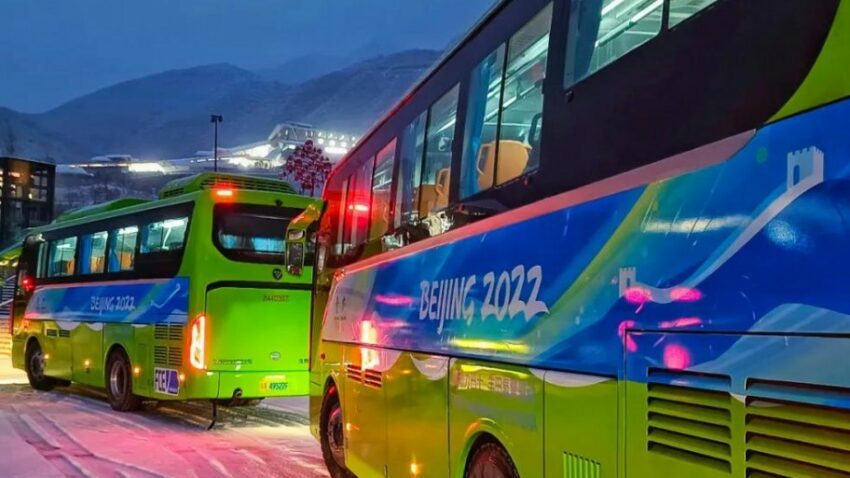
After the Olympics event, these hydrogen fuel cell vehicles will continue to serve the public through various public transportation systems in Beijing and Hebei. This demonstration is expected to accelerate the popularity of hydrogen-fueled buses in China. In fact, 16 provinces and cities including Beijing, Shandong, Hebei, Tianjin, Sichuan, Zhejiang, and Ningxia, already have formulated hydrogen energy development plans.
Related: Toyota Snatches World Hydrogen Distance Record from Hyundai
Furthermore, the number of hydrogen fuel cell vehicles in China is expected to increase from 7,352 in 2020 to 100,000 in 2025. By 2025, the market size of hydrogen fuel cell vehicles is expected to reach 80 billion RMB ($12 billion USD), according to the China Hydrogen Energy Industry Development Report published in 2020.
Source: CarNewsChina

A computer animation professional with over 23 years of industry experience having served in leading organizations, TV channels & production facilities in Pakistan. An avid car enthusiast and petrolhead with an affection to deliver quality content to help shape opinions. Formerly written for PakWheels as well as major publications including Dawn. Founder of CarSpiritPK.com

